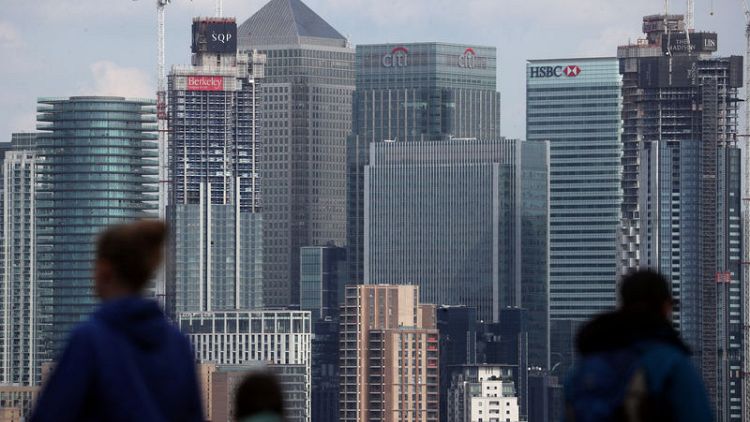LONDON (Reuters) - The Bank of England thinks Britain's closely watched business surveys might be overstating the recent weakness in the country's economy, but they appear to be working well as gauges of how major industries are faring.
The world's fifth-biggest economy has slowed ahead of Brexit. But many business surveys suggest that the pace of growth has been even more sluggish than the official data shows.
Last week, policymakers at the BoE suggested the surveys could have put too much weight on the Brexit effect.
"Some of the usual relationships between the surveys and what actually happens in the economy are less tight," Governor Mark Carney said on Thursday, citing the closely watched IHS Markit/CIPS Purchasing Managers' Index (PMI).
On Friday it showed the dominant services industry grew only weakly in April.
A sharp fall in the PMIs immediately after the 2016 referendum decision to leave the European Union helped spur the BoE to cut interest rates and expand its bond-buying programme, only for the slump in the surveys to reverse quickly.
Data firm IHS Markit, which produces the PMIs, said its latest survey was indicative of a flat economy at the start of the second quarter of 2019.
That was weaker than the BoE's forecast for quarterly growth of 0.2 percent.
If the PMI is underestimating growth, it is probably because it does not cover sectors in Britain's economy that are growing well, rather than any overemphasis of Brexit uncertainty.
For example, the services PMI covers a broad cross-section of the private sector economy: hotels and restaurants, transport and storage, communications, financial firms, property companies and other services firms.
But it excludes the wholesale and retail industry, equivalent to 13 percent of total services output, as well as public-dominated services like health and education that account for another 22 percent.
As it happens, those are the sectors that have done best lately.
Official data shows that the wholesale and retail sector was the one of the most powerful drivers of economic growth in the three months to February.
And health and education services accounted for about a quarter of Britain's economic growth rate over that period.
In the fourth quarter of 2018, the government was the biggest driver of economic growth in expenditure terms, only the second time this has happened since 1997.
Indeed, the PMI may have only slightly underestimated growth recently in the sectors that it covers, based on an index of the services sector that excludes retail and public services not covered by the survey.
(GRAPHIC: Do the PMIs and official data match up?, click https://tmsnrt.rs/2DUaUlI)
(GRAPHIC: UK services PMI and the Bank of England, click https://tmsnrt.rs/2LtRACe)
(Reporting by Andy Bruce; Editing by William Schomberg)



